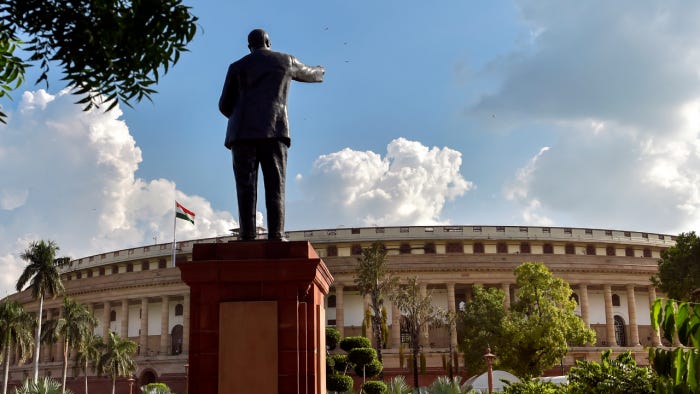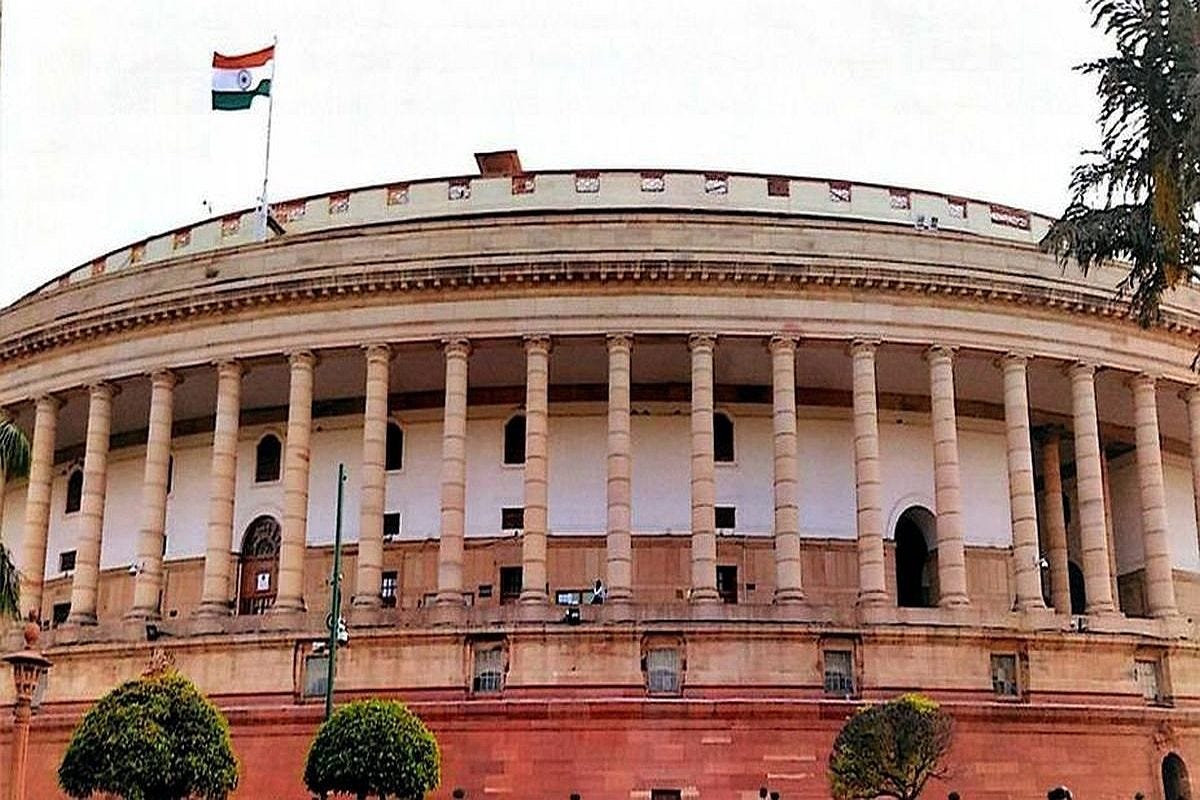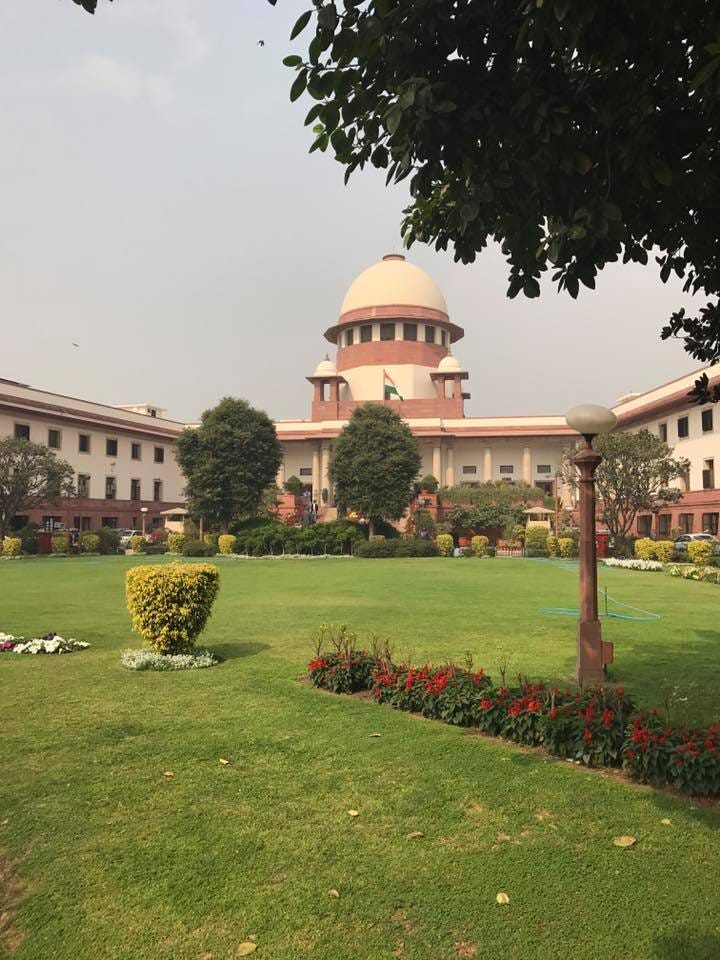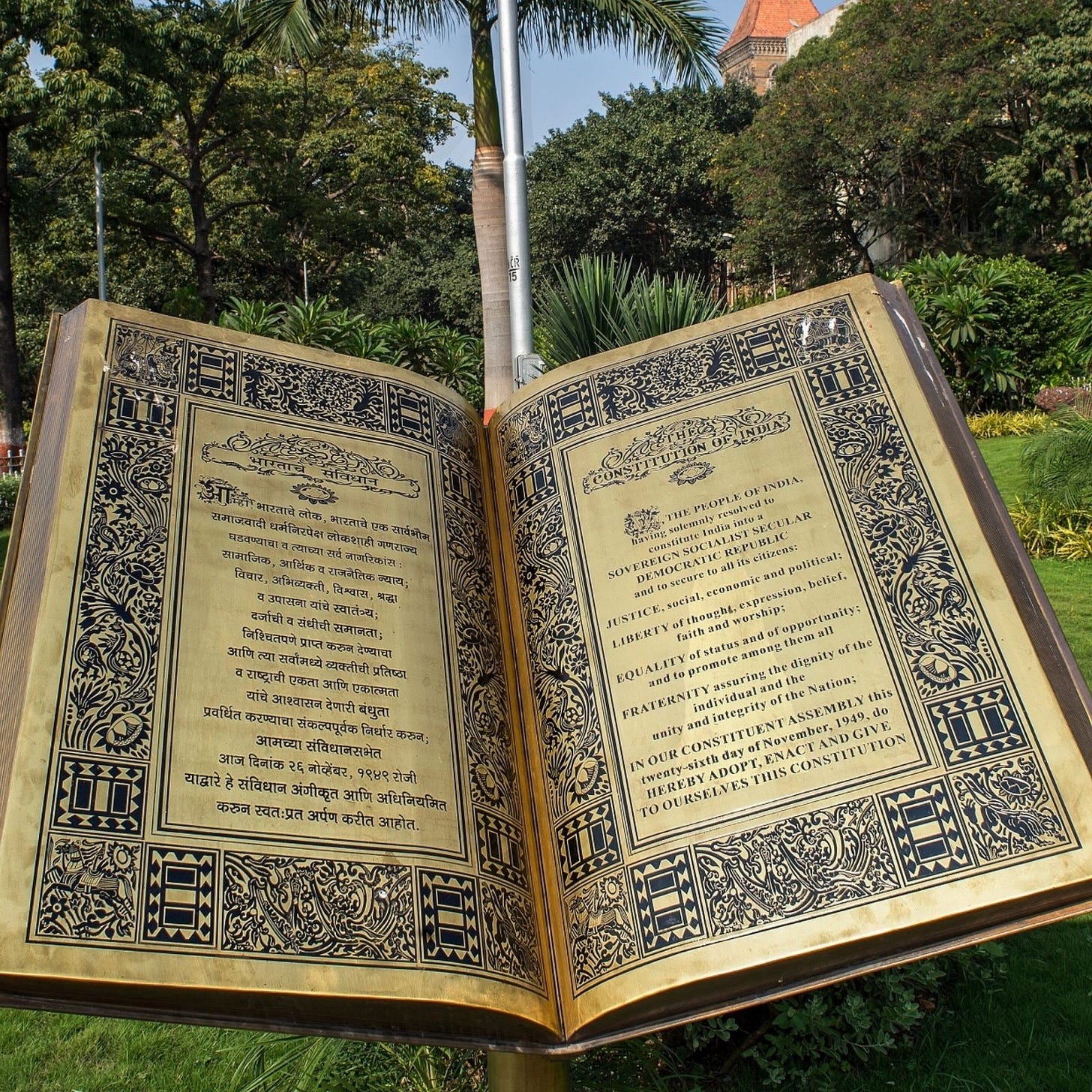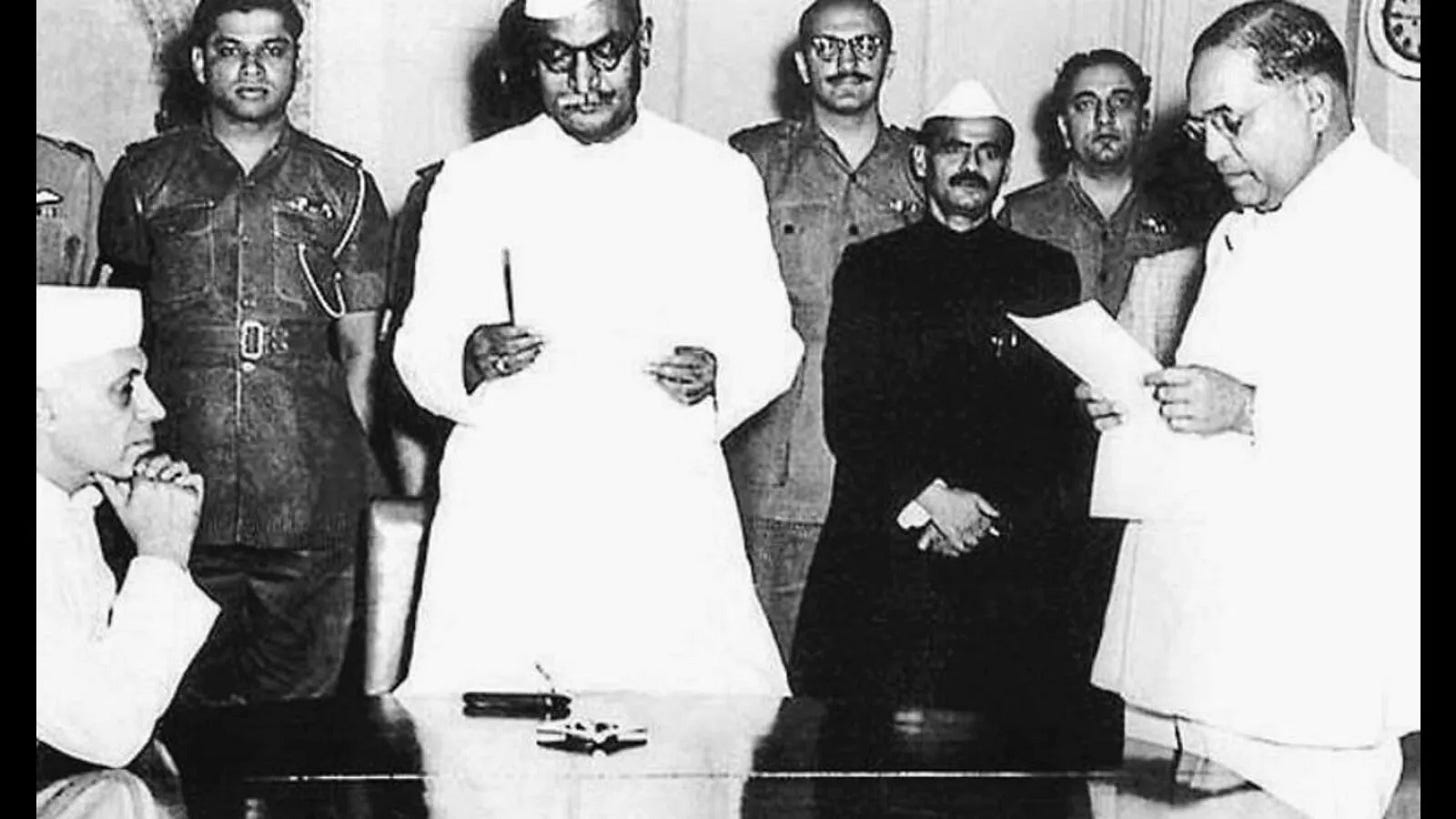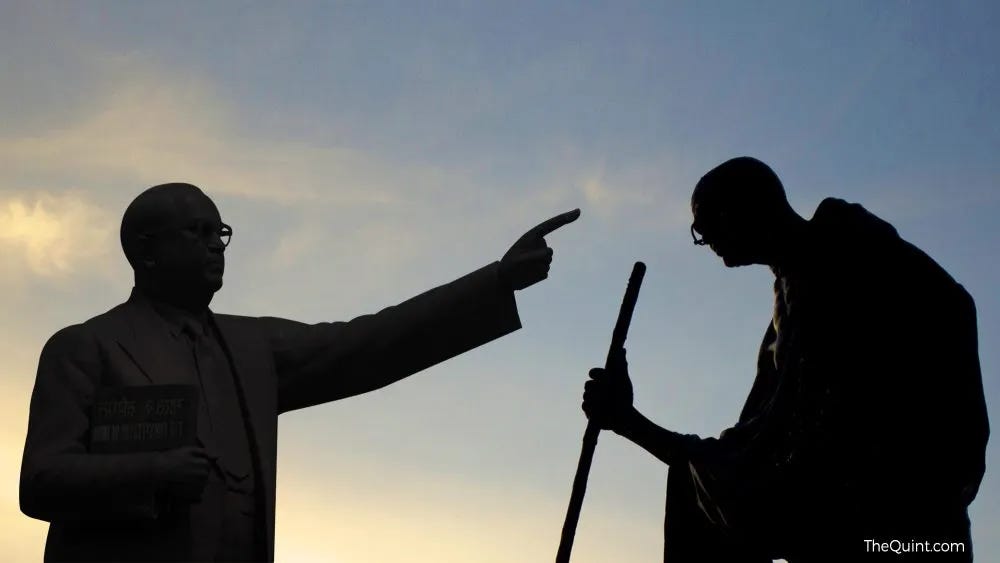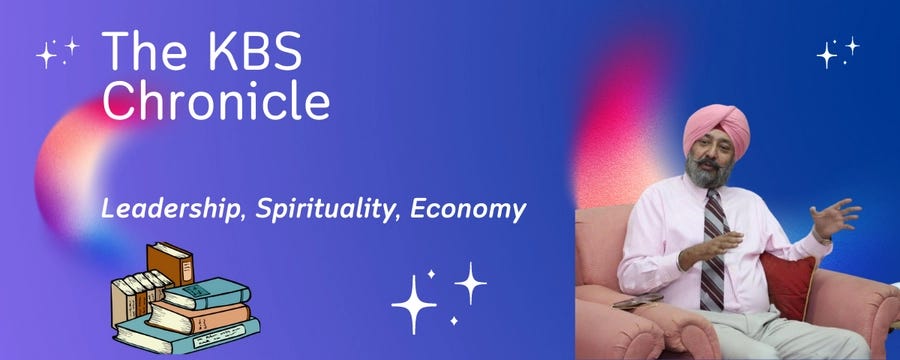Constitution Day Contemplations: "Bharat of my Dreams"
Just as the Constitution is not a static edict, the concept of the Republic of India must also continuously evolve to be not merely the largest democracy but also the best one globally.
Commemorating the Constitution Day: Reflections on India's Constitutional Journey
As we commemorate the Constitution Day today, November 26, it is a day of historical significance, marking the adoption of the final draft of the Constitution of India by the Constituent Assembly in 1949. Although the Constitution was scheduled to come into force from January 26, 1950, this date was chosen to honour the Resolution for Poorna Swaraj, adopted at the Lahore Session of the Indian National Congress on January 26, 1930.
The Essence of Bharat: A Cultural and Constitutional Perspective
Article 1 of the Constitution states: “India, that is Bharat, shall be a Union of States.” It's essential to recognize that the concept of Bharat, encompassing the whole of South Asia, is not merely a geographical entity but a cultural and emotional construct that predates the Republic. This concept has endured through various forms of governance, from empires to sultanates, reinforcing the notion of a unified Akhand Bharat, which neither the Mughal rule nor the British Empire, with its vassal Princely States, could fundamentally alter.
Defining India Through Its Constitution
What distinguishes modern India, or Bharat, is its definition and identity through the all-encompassing lens of its Constitution. Among the world's lengthiest written constitutions, it is a testament to the Founding Fathers' wisdom in amalgamating principles from the American Constitution, the ethos of the French Revolution, and the general law of England, including the Magna Carta. Interestingly, the UK, in contrast, does not have a formal written constitution.
The Evolution and Integrity of the Indian Constitution
The Indian Constitution now comprises 448 articles across 25 parts, along with 12 Schedules, and has undergone 128 amendments, the latest being the Women Reservation Bill. The landmark Kesavananda Bharati judgment of 1973 by the Supreme Court, with a slim (7-6) majority, established that while Parliament can amend any part of the Constitution, including the Part III pertaining to the Fundamental Rights, it cannot alter its "basic structure." This pivotal decision ensures that democracy and an independent judiciary, with limited powers of judicial review, shall remain integral to the Constitution's basic features, for all times to come.
Democracy and Governance: The Constitutional Framework
During the Emergency, when a Presidential form of government was being proposed, it was contended that democracy, a basic feature of the Constitution, does not necessarily imply a Parliamentary system. The Supreme Court’s interpretation ensured that the essence of democracy, regardless of its form, remains a fundamental and immutable aspect of the Constitution. However, democracy alone, without a robust set of Fundamental Rights of its citizens, shall not be sufficient to comprise an ideal Republic.
Hierarchy of Constitutional Provisions: The Primacy of Fundamental Rights
Within the Constitution, Part III, dealing with Fundamental Rights, holds a superior position. Article 21, protecting life and personal liberty, not merely of its citizens but of every person on the Indian soil, is deemed the very core of these rights, followed closely by Article 19, which guarantees freedoms including speech and expression. The right to freedom of religion is enshrined in a separate Article 25, while Articles 14, 15 and 16 lay the foundation for equality before law and equal protection of law.
Strengthening the Republic: Evolving Interpretations of Fundamental Rights
On this solemn occasion of Constitution Day, we propose that to ensure the longevity of the Republic, it's imperative to fortify the provisions of these Fundamental Rights, either through judicial decisions or conscious and proactive constitutional amendments, as originally envisioned by our Founding Fathers.
Revisiting Self-Incrimination Protections: A Comparative Study of India and the USA
In an exploration of Articles 20 and 21 of the Indian Constitution juxtaposed with the Fifth Amendment of the US Constitution, we observe a striking similarity in their provisions, with notable differences in application. The Fifth Amendment in the USA allows individuals to "Invoke the Fifth," providing a broad shield against self-incrimination in various proceedings, including criminal trials, congressional hearings, and even investigations. This right is applicable at any stage, encompassing the entire legal process. On the other hand, Article 20(3) of the Indian Constitution, stating “No person accused of any offence shall be compelled to be a witness against himself,” has been interpreted more narrowly by the Indian Supreme Court.
The Apex Court’s interpretation limits this protection to individuals formally 'accused' in criminal proceedings, where charges have been framed by a competent court. This implies that during pre-trial stages, inquiries, or investigations by law enforcement agencies, individuals cannot invoke Article 20(3) to refuse cooperation in providing any evidence or information that could potentially be self-incriminating. This includes refusal to answer questions, or provide samples for forensic analysis like fingerprints, voice samples, or undergo narco-analysis. This situation calls for a re-evaluation and potential strengthening of the right against self-incrimination in India, advocating for a broader constitutional protection that enables citizens to maintain silence at any stage of legal proceedings, thereby aligning more closely with the expansive protection offered in the United States.
Comparative Analysis of Free Speech: India and the USA
In the United States, the First Amendment robustly fortifies free speech, making it a cornerstone of American society and governance. Conversely, in India, the Freedom of Speech under Article 19 is subject to reasonable restrictions for reasons including national security, public order, and other significant concerns. These restrictions encompass a range of issues such as the sovereignty and integrity of India, state security, decency, morality, and preventing defamation or incitement to an offence. In addition to these constitutional limitations, various laws in India act as further deterrents to free speech. Prominent among these are the sedition law under Section 124A of the IPC, Section 153A which deals with promoting enmity between different groups, and Section 295A, which addresses acts intended to outrage religious feelings. These legal provisions, while not inherently redundant, are often criticized for being misused against political opponents, journalists, and activists, under the guise of protecting public order and religious sentiments.
The Need for Reform in Indian Free Speech Laws
Moreover, Section 499 of the IPC criminalizes defamation, and the law of contempt of court restricts comments on ongoing judicial proceedings. This situation contrasts starkly with the near-absolute right to free speech in the US, exemplified by the freedom to openly criticize even the President or a presiding judge. The Indian legal framework, thus, raises questions about the balance between maintaining public order and preserving the fundamental right to free speech. While it is argued that unrestricted speech could threaten public order and the judiciary's integrity, there is a growing call for reflection, especially on Constitution Day, on whether these restrictions should be redefined. The goal is to strengthen free speech by establishing clear, narrow parameters for legal restrictions and considering civil penalties instead of severe criminal punishments. This approach would ensure a more balanced and just application of free speech laws in India, aligning closer to the democratic ideals enshrined in the Constitution.
Equality and Reservation: A Constitutional Conundrum
Articles 14 and 16 of the Indian Constitution, symbolizing the principle of equality, are currently challenged by the complexities of multiple reservation policies. These policies, initially designed to redress historical injustices, risk infringing upon the rights of the general category if expanded beyond 50%, which is no longer a rare phenomenon. This overextension could potentially conflict with the constitutional ethos of equality. To navigate these challenges, a nuanced re-evaluation of reservation policies is essential. This re-evaluation should emphasize affirmative action and educational support, ensuring a balanced approach that fosters fairness and upholds the core principle of equality.
The ultimate goal must be to steer the citizens towards progress rather than compete for backwardness. In this context, it's imperative to address the caste system, a deeply rooted issue in Indian society. Dr. B.R. Ambedkar's seminal work, “The Annihilation of Caste,” offers profound insights into this matter. It serves as a crucial read for every enlightened citizen, regardless of caste, creed, or religious belief, encouraging reflection and understanding of the need to transcend these historical divisions for the collective progress of the nation.
Embracing a Progressive Future: Honouring Our Constitutional Heritage
As we commemorate Constitution Day, we honour the founding fathers and martyrs of our freedom struggle, advocating for a progressive and liberal interpretation of our Fundamental Rights, especially those enshrined in Articles 21, 20(3), 19, and 14, 15 & 16. India's aspiration to become a global model of democracy marks the beginning of a transformative journey. This journey is about enhancing these rights and embracing the ethos of continuous evolution and improvement. Let's engage in positive and proactive measures that not only preserve but also strengthen, cement, and fortify the basic features of our Constitution, ensuring that our constitutional framework evolves constructively to reflect the vision and values that define our Nation.
Constitution Day Reflections: Emphasis on Individual Dignity in Post-Colonial India
As we commemorate Constitution Day, it is imperative to reflect on the transformative journey India undertook from colonial rule to a sovereign, democratic Republic. Under British colonial domination, the concept of individual dignity was often relegated to the whims and fancies of the colonial masters and their minions. In stark contrast to that era, where individuals were treated as subjects rather than citizens with inherent rights, the Indian Constitution, adopted post-Independence, places a significant emphasis on upholding the "dignity of the individual" while simultaneously nurturing the "unity and integrity of the nation." These ideals, enshrined in the Preamble, are not mutually exclusive; rather, they are symbiotically intertwined. In fact, the two are complementary, not contradictory.
Ensuring the dignity of every individual, particularly through the state's actions and legal frameworks, lays a foundation for respect, equality, and justice. This commitment to individual dignity is a powerful antidote to the legacy of colonial rule, where such concepts were frequently disregarded. By honouring and protecting individual dignity, the Constitution not only affirms the rights of its citizens but also fortifies the collective fabric of the nation. In this light, individual dignity is not only a moral imperative but also a cornerstone for national cohesion and unity. As we celebrate Constitution Day, it is essential to remember that the pursuit of individual dignity is integral to the continued progress and unity of our nation, standing in stark contrast to the oppressive colonial past.
Charting a Path Towards a Model Democracy
On this Constitution Day, let us pledge to uphold and strengthen the constitutional values that form the bedrock of the Indian Republic. Our collective responsibility is to honour our ancestors' sacrifices and work towards a more equitable, just, and progressive nation. The Sovereign, Socialist, Secular, and Democratic Republic of India should not be content with merely being the largest democracy in the world but also aspire to be the model for the best democratic system globally. As the ancient Chinese philosopher Lao Tzu said, "A journey of a thousand miles begins with a single step." Let us take that first step today, irrespective of our roles or positions, in a united effort to honour the legacy of those who fought fearlessly and selflessly for our Republic.
Jai Hind!




